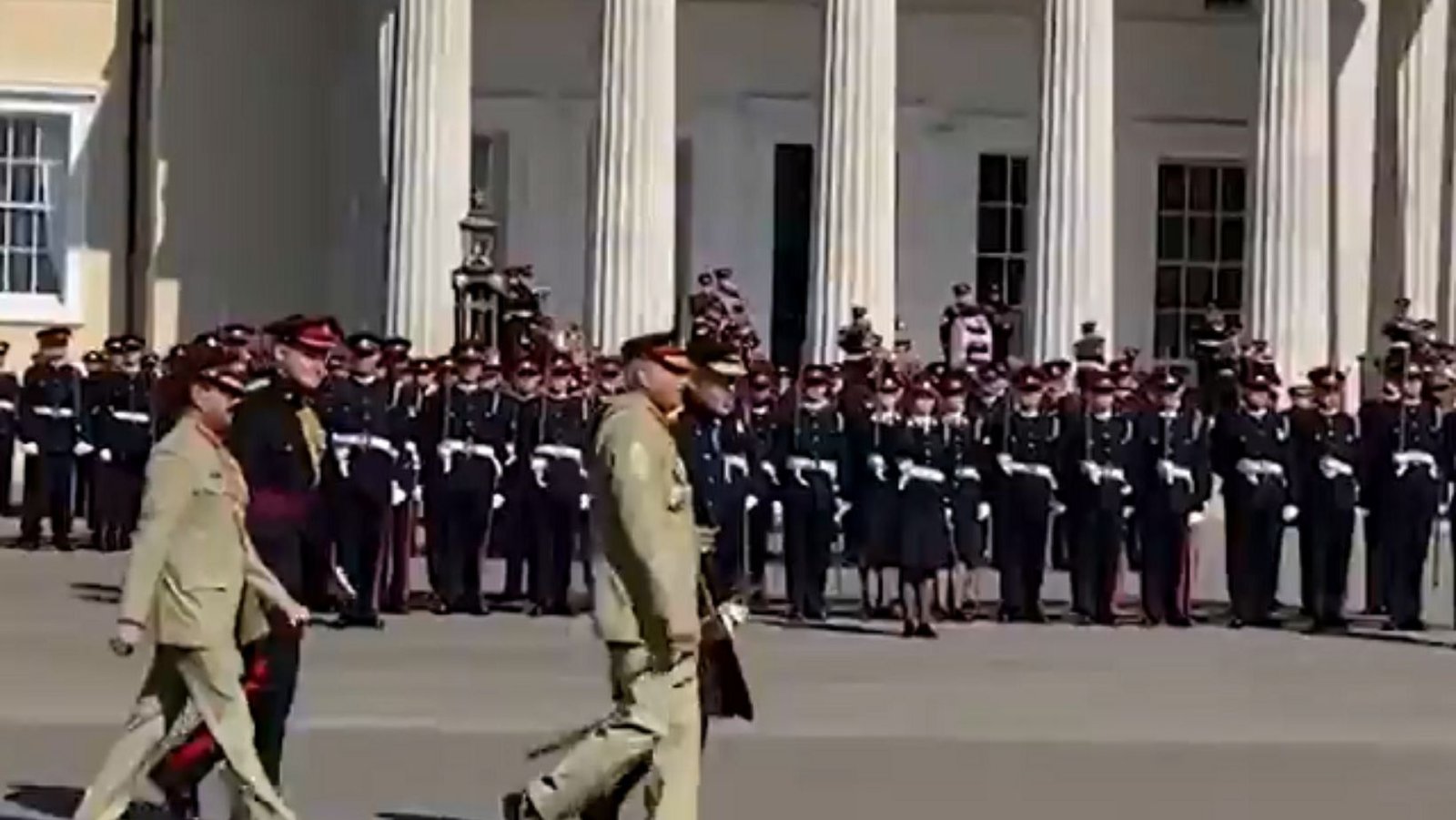COAS Bajwa is the first Pakistani invited to Sandhurst as the chief guest


On Friday, General Qamar Javed Bajwa, the Chief of Army Staff (COAS), was welcomed as the Royal Military Academy Sandhurst"s first-ever chief guest.
Cadets from 27 nations, including the United Kingdom, joined the general (UK). Cadets Muhammad Abdullah Babar and Mujtaba from the Pakistan Military Academy were two of the 41 international cadets (PMA).
When speaking to the graduating cadets and their families at the passing out parade, the army chief made special notice of the two Pakistani cadets who were among the grads.
The general thanked the Sovereign"s Day Parade at Sandhurst for giving him the "unique honour and great privilege" of speaking at the event. He saw this as evidence of "the deep-rooted connection that exists between Pakistan and the United Kingdom, based on mutual respect and shared values that have been carefully nurtured by both nations over many decades."
The young cadets were greeted by the COAS as they entered "the most renowned and the noblest of professions," but he also took the opportunity to remind them of the "high expectations associated" with their alma mater and their respective countries.
As he reminded the graduates that they needed to develop the "lofty traits of leadership, with clear sense of purpose, to gain trust and respect of [their] subordinates," General Bajwa stated, "The trip that awaits you is tough as well as thrilling."
He continued, "Today"s leaders must have the guts to make tough choices and then assume full responsibility.
According to COAS, "dual-use technologies and niche capabilities headed by artificial intelligence are profoundly transforming the character of future combat as a direct result of the advent of the fourth industrial revolution."
The general stated that, in light of recent scientific and technological advancements, "the battlefield of tomorrow would be characterised by extreme precision, lethality, and accountability which would be especially challenging for military leaders, especially young officers in battle, both mentally and physically."
To assure a successful ending in the war, he added, "This future is unavoidable, and each of you would have to adjust to new realities in the technology sphere."
"Today, the main goal of the armed forces should not be to wage wars, but rather to prevent them from happening," said COAS Bajwa.
The future of humanity depends more than ever on our ability to unite and choose the path of peace and collaboration over conflict, communication over confrontation, and multilateralism over self-preservation, he continued.
In order to sustain the vitality, relevance, and internal feeling of impartiality of multilateral institutions, maintain agreement on the collective defence of global commons, and defend the reputation of international law, General Bajwa stressed that world peace was urgently needed.
A day earlier, the army chief touched down in the UK for an official visit.
The army chief will visit the UK military hierarchy while in the country in addition to taking part in the passing out parade at Sandhurst, according to a press statement from Inter-Services Public Relations (ISPR).